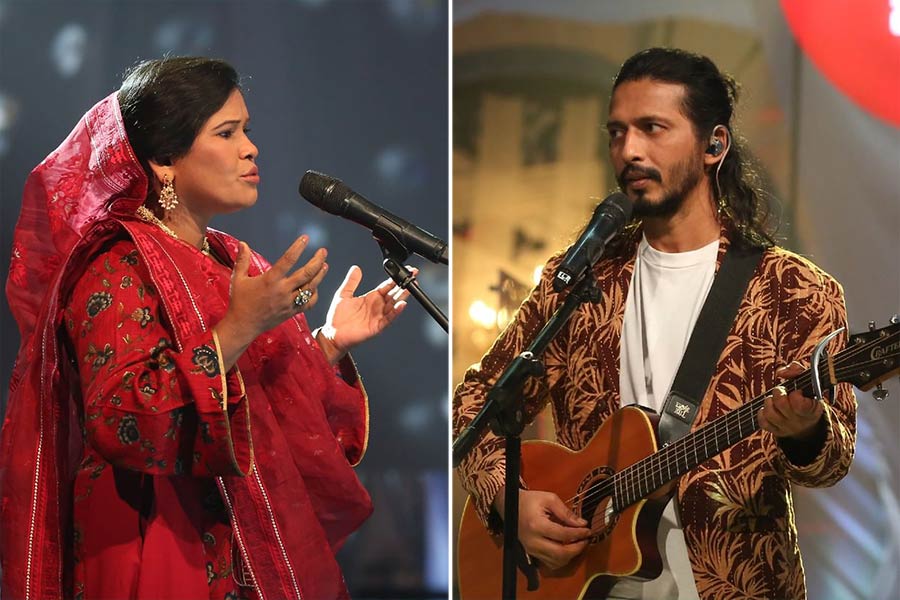
Published :
Updated :

Whoever listened to 'Dilaram', the latest release by Coke Studio Bangla, has been surely introduced to the love and admiration the songs of Hason Raja convey.
Another element has been introduced too: the compassionate singing voice of Hamida Banu, who came into the limelight through this song. She played a major role in composing 'Dilaram', confirmed by Coke Studio Bangla curator and co-singer Arnob himself. But who is this Hamida Banu? What was her life before?
The life of Hamida Banu was full of hardships and sacrifices, but her life begins with embracing the spirituality of music.
Hamida hails from the village of Bongao in the Rangarchar Union, nestled at the foothills of the Meghalaya hills. From an early age, she was the youngest among three siblings and had been exposed to music and singing.
Her father, Lal Mia, was a Baul artist, and he used to sing alongside Baul Shah Abdul Karim. He would sing, and Hamida quietly listened, later humming along to his tunes. She often accompanied him to various musical gatherings and events.
In 1991, tragedy struck when 15-year-old Hamida lost her father due to the absence of proper medical care. After that, Hamida's family relocated to Sunamganj, where her unwavering passion for music endured.
She continued participating in various musical events, catching the attention of Mominul Moizuddin, the great-grandson of Hason Raja and former Mayor of Sunamganj. His invitation led to her first public performance at the Hason Utsab (Hason Festival), where she sang two songs on a grand stage.
However, the path to her musical dreams was fraught with challenges. Invitations to perform were resisted by neighbours who believed a young girl should not sing. Her mother's ultimatum forced her into an early marriage at just 16 to Sukkur Ali, a man from a neighbouring village.
Her husband, a part-time musician, struggled to provide for the family. Poverty forced Hamida to abandon her singing aspirations temporarily.
Eventually, her husband suggested they seek better opportunities in India, particularly in Kashmir. She embarked on a journey with her two-year-old son, but lack of proper documentation led them to Bahrampur jail.
Three years in jail followed when Hamida performed in cultural events and Durga Puja celebrations. Her singing talent caught the attention of the jail superintendent, and one event had a special guest, the current Chief Minister of West Bengal, Mamata Banerjee.
Hamida's heartfelt rendition of Shah Abdul Karim and Hason Raja's songs left a lasting impression, prompting Mamata Banerjee to help secure her release.
In 2015, a visit to the Hason Raja Bari changed her life. Samirun Dewan, Hason Raja's great-grandson, was searching for a housekeeper for the Hason Raja Bari. Hoping for a chance to sing, she agreed and was hired as a housekeeper.
Samirun Dewan, also a musician, recognized her potential. He offered to teach her songs, and with dedication and practice, she learned to sing many of Hason Raja's compositions.
In 2018, Hamida's collaboration with UNESCO, facilitated by Samirun Dewan, brought her singing to a wider audience. Some of Hason Raja's songs featuring her vocals became part of this project.
Today, Hamida Banu's life revolves around music, the very essence of her existence. She continues to sing, her journey marked by resilience, passion, and unwavering dedication to her craft. Beyond music, there is no other life for her.
contact.iftekhar.tne@gmail.com


 For all latest news, follow The Financial Express Google News channel.
For all latest news, follow The Financial Express Google News channel.